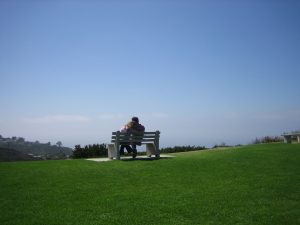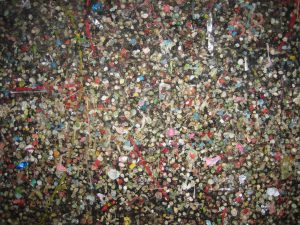It's almost, but not quite, embarrassing to admit how much time I spent as a kid playing "Radio DJ" in my room. I had a Fisher Price turntable along with a cassette deck hooked into a surprisingly advanced "be your own DJ" toy mixing device, and I would spin tunes for hours, paying particular attention the cross fades, the track notes announced in between songs, and faux news and weather reports to my non-existent listeners. You create art for yourself regardless of whether someone else gets to view/hear it, right?
Month: July 2009
When Henry Louis Gates Jr. was arrested on July 16th at his house in an apparently over-zealous and possibly racially charged police decision, everyone involved quickly fell into the usual pattern of conflict for these kinds of incidents. Statements were released, lawyers were hired, accusations and implications were flung, and everyone prepared for to defend themselves in battle. The media did its usual thing, egging on the conflict and brinksmanship, interpreting every action and word in the worst possible light, and the parties involved in the fight used those channels to communicate their anger with each other indirectly. When President Obama first got involved, he only escalated the situation by first admitting that he didn't have all the facts, and then proceeding anyway to say that one of the parties involved had acted "stupidly." Awful and disturbing, but pretty much what everyone expected.
But then something curious and possibly amazing happened.
 One of my recurring summer jobs, in addition to filling and unfilling the tubes of the Internets, is to adjust the height of the small vertically-oriented plant life that densely covers the land surrounding my house.
One of my recurring summer jobs, in addition to filling and unfilling the tubes of the Internets, is to adjust the height of the small vertically-oriented plant life that densely covers the land surrounding my house.
Many people refer to this act as "cutting the grass."
Over the last few years I've tried quite a wide variety of approaches to and implements for "cutting the grass," and I'd like to share them with you now, because imparting unsolicited and only moderately useful information to a halfway-interested audience is what blogging is all about, no?
- Not mowing the grass at all.
Continue reading "Cutting the Grass"
 I've written before about how RSS feeds and website content syndication can make a big difference in how you take in content online. If you haven't played around with a feed reader service or tool (like Google Reader), you should really give it a try.
I've written before about how RSS feeds and website content syndication can make a big difference in how you take in content online. If you haven't played around with a feed reader service or tool (like Google Reader), you should really give it a try.
But now it's time to explore the darker side of RSS feeds (or, for those of you stuck in the 1990s, web browser bookmarks): despite making your continued content consumption more efficient, it's still too tempting to subscribe to too many of them, and once again have too much "clutter" in your electronic life.
My own feed reading list ranges between 100-200 feeds at any given time (thanks NetNewsWire for making this easy!), and I've had to be very intentional about keeping the list that "small." So, in hopes of helping you prevent RSS feed frenzy, and perhaps to learn about some of your techniques for the same, I present "5 reasons to ditch an RSS feed":
Continue reading "5 reasons to ditch an RSS feed subscription"
 One of the downsides of working in a field where so much is beholden to the almighty billable hour is that my brain has started to re-wire itself to engage the day in terms of one-hour chunks. This model is reinforced by other phenomena in life - calendaring software like iCal and Google Calendar make it easy to parcel out the day in discrete bits of time, beeps, alarms and bells go off on the hour mark in many workplace and educational settings, and then there's the cultural convention that "all meetings take about an hour" unless otherwise noted. We're increasingly a people whose quality of life and measure of productivity has everything to do with the 24-hour clock.
One of the downsides of working in a field where so much is beholden to the almighty billable hour is that my brain has started to re-wire itself to engage the day in terms of one-hour chunks. This model is reinforced by other phenomena in life - calendaring software like iCal and Google Calendar make it easy to parcel out the day in discrete bits of time, beeps, alarms and bells go off on the hour mark in many workplace and educational settings, and then there's the cultural convention that "all meetings take about an hour" unless otherwise noted. We're increasingly a people whose quality of life and measure of productivity has everything to do with the 24-hour clock.
I generally don't mind this standard when I'm in "work mode," but I've noticed a very undesirable side effect on the rest of my life: I've been slowly losing the ability to spend open-ended social time with people, without my brain trying to fit it in to some predetermined scheduling blocks. The end result is that I think I'm less open to the wonderful, serendipitous experiences and discoveries that one can make in the comfortable and unregulated presence of friends and loved ones.
I've written before about the cues we give and get for when a conversation is going to go deeper, and when it's probably not. To answer my own question about what kinds of states of being allows you to go deeper in conversation, I've been actively working on spending more open-ended time with people I care about and want to get to know better. I have a few thoughts about how it's going, and what approaches are working:
